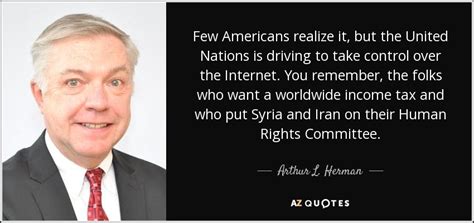A Quote by Robert Dallek
What makes war interesting for Americans is that we don't fight war on our soil, we don't have direct experience of it, so there's an openness about the meanings we give to it.
Quote Topics
Related Quotes
All this stuff you heard about America not wanting to fight, wanting to stay out of the war, is a lot of horse dung. Americans, traditionally, love to fight. All real Americans love the sting of battle. Americans play to win all the time. I wouldn't give a hoot in hell for a man who lost and laughed. That's why Americans have never lost - and will never lose - a war, because the very thought of losing is hateful to Americans.
It seems to me an utterly futile task to prescribe rules and limitations for the conduct of war. War is not a game; hence one cannot wage war by rules as one would in playing games. Our fight must be against war itself. The masses of people can most effectively fight the institution of war by establishing an organization for the absolute refusal of military service.
We who have touched war have a duty to bring the truth about war to those who have not had a direct experience of it. We are the light at the tip of the candle. It is really hot, but it has the power of shining and illuminating. If we practice mindfulness, we will know how to look deeply into the nature of war and, with our insight, wake people up so that together we can avoid repeating the same horrors again and again.
Americans are at war with radical Islamic terrorism. We are at war with the ISIS caliphate, and what we need is a commander-in-chief who knows that, who understands that, who will give our military the resources they need to make that fight, pull our allies together - including moderate Arab nations - and hunt down and destroy ISIS and other terrorist organizations at their source.
The most interesting statistic, stunning statistic that came out of my research was that in 1942, as this war production effort is going on, the number of Americans killed or injured in war-related industries surpassed the number of Americans in uniform killed and wounded in action in the war by a factor of 20 to 1.
When I was arrested opposing the war in Vietnam in 1965, as I said about 20 or 30% of people were opposed to the war. By 1968, more than half of Americans were opposed to the war. If you pull in Europeans, Canadians, people from around the Third World, the war was vastly unpopular. But even half of Americans by 1968 opposed the war.







































